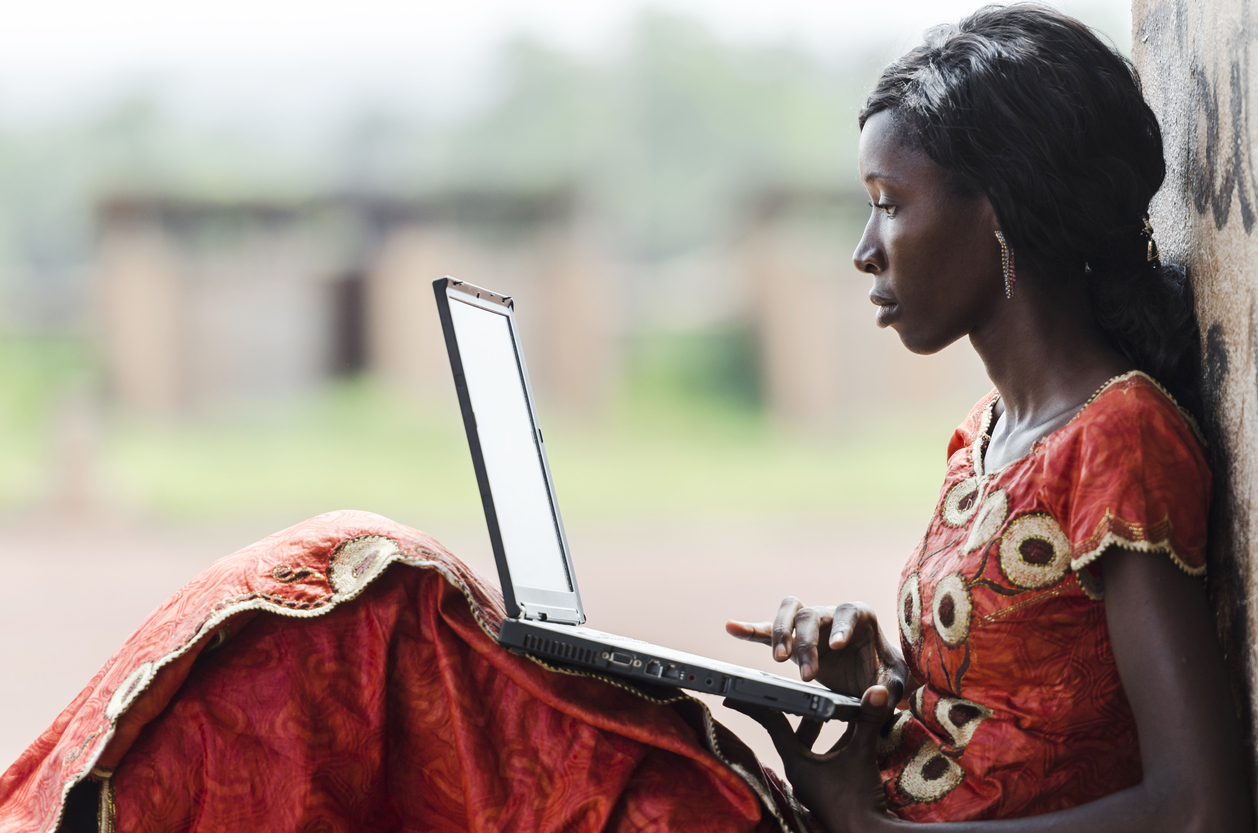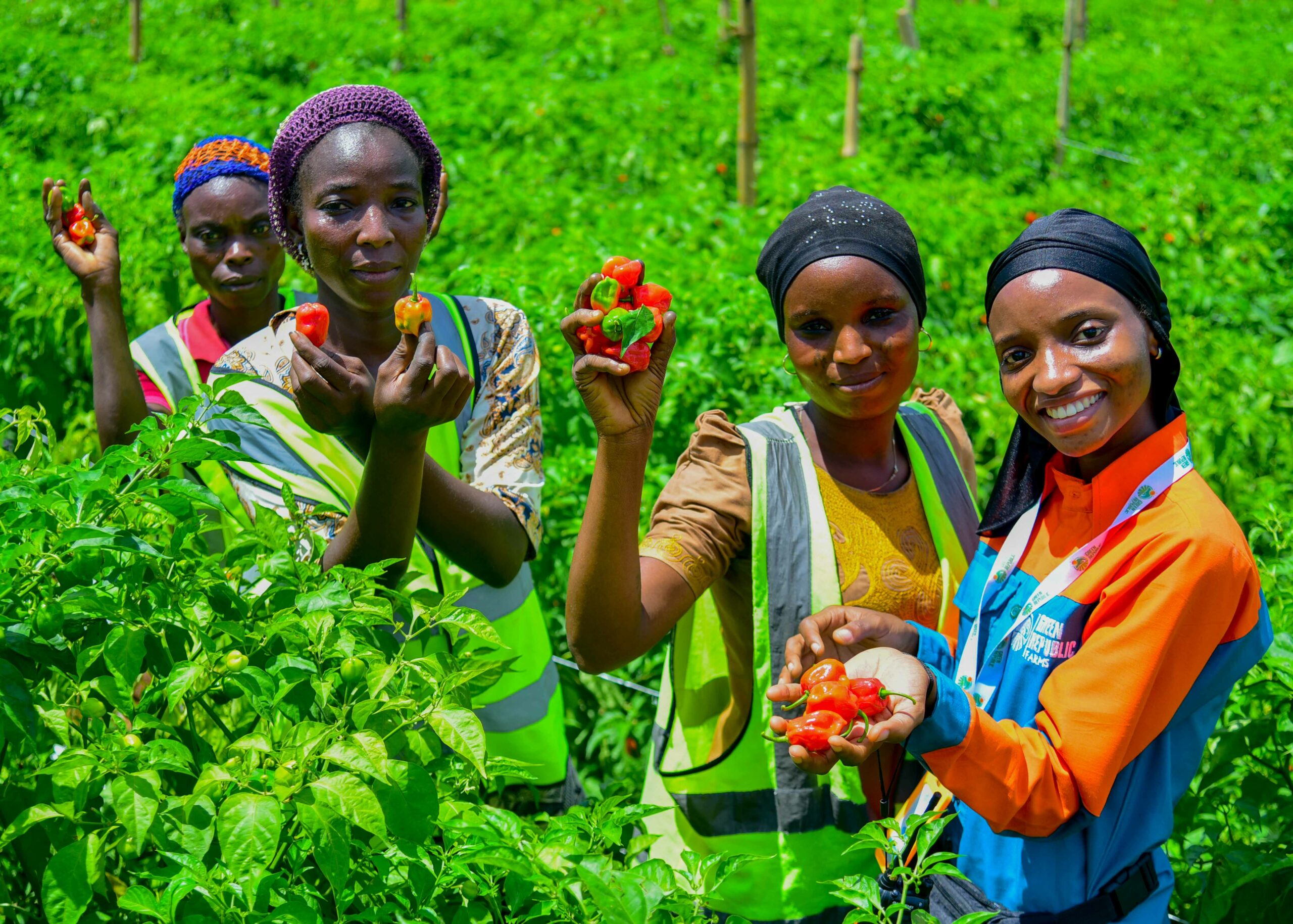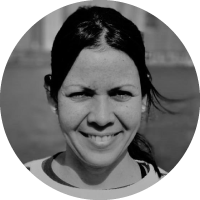Bridging the Gap: Tackling Climate Change and Gender Inequality through Digital Media
Baliqees Salaudeen, 25, is a Nigerian social activist who is passionate about climate action. Baliqees has set out to redefine traditional agricultural practices as the co-founder of Green Republic Farms and she is a member of the Global Center on Adaptation’s Youth Advisory Panel. To mark International Women’s Day, we sat down with her to draw inspiration from her journey as a leader in climate adaptation.
T
hose who are most affected by the climate crisis – women and girls in climate-vulnerable regions like Africa – should be at the forefront of climate adaptation action.
Not only does climate change pose significant challenges to girls’ education, it also impacts women’s health and places additional burdens on them.
Women often play a critical role in managing natural resources and as primary caregivers and providers for their families they are perfectly positioned to promote adaptation practices in their communities. Their leadership in climate adaptation action and decision-making is essential.
Yet, like many African women, when Baliqees started her climate activism journey, she found little to no support.
Instead of letting obstacles get the best of her, she sought the guidance she needed through programs like the Online Executive Training – Young Women Leadership on Climate Adaptation. This 20-week online training program was supported by the Global Center on Adaptation (GCA) and NORAD, and organized by the Ban Ki-moon Centre (BKMC), CARE Climate & Resilience Academy, and the Diplomatic Academy of Vienna to address the climate crisis by elevating the leadership skills of young African women. She also took online courses on climate change and environment from Cornell University.
“I realized that a lot of people really are going into this space like me, with little or no support. So I want to be able to bridge that gap so that they can have the organizational skills, the professional skills, connecting them to organizations doing activities and helping them carry out projects that are major solutions to problems in their community,” said Baliqees.
Innovation and technology for gender equality

Baliqees, a communicator and digital strategist, embodies this year’s International Women’s Day theme, DigitALL: Innovation and technology for gender equality, to perfection.
She embraces and employs digitalization and social media not just as the Head of Human Resources and Corporate Social Responsibility of Green Republic Farms, but for social and climate causes and to support other women leaders and local activists in achieving their goals.
She empowers young women and fights gender inequality through She Leads Climate Action (SLCA), a not-for-profit organization that leverages digital tools and technology to drive climate adaptation and funding for climate action for girls and women leaders in Nigeria and throughout Africa. Baliqees has also mobilized hundreds of Nigerian young people to carry out cleanups through the PickThatTrash campaign.
“I’m happy to tell you that She Leads Climate Action is kicking off. We’re doing a lot of virtual online activities and starting a fellowship to connect young women with organizations that work on climate change so that they can get the knowledge they need about climate change and climate action. At the end of the fellowship program, which is six months long, they get funding to help them carry out their projects in their communities,” said Baliqees.
An Enabling Environment

When asked how we can better achieve gender equity and equality in the climate adaptation movement, Baliqees said:
“If we really want to achieve gender equity and equality, balance, we need to create an enabling environment for women to really succeed. We cannot keep saying that we want women to be this, we want women to be that. You see a lot of international organizations making it so difficult for them to succeed at the end of the day.”
Baliqees explained that initiatives aimed at supporting women and young climate leaders often require complex application processes that are impossible to navigate if, for instance, you live in a remote village without access to technology.
“For us to really achieve equity in this space, there must be an advanced way of supporting women genuinely. I make emphasis on ‘genuinely’ because a lot of people are not doing this because they genuinely want to do it. You don’t just come to women with solutions. You tell them, you ask them, ‘What do you need? How do you think we can better support you? How do you think this can better work for you?’” she said.
This is what the Young Women Leadership on Climate Adaptation training accomplished for Baliqees.
“The facilitators, you know, experienced people coming to share their journey, their work – it was just so inspiring, right? For me it was like another platform to learn more about climate change and it’s also really helped us with the farm, with the adaptability part of it and the leadership structure,” she noted.
Watch the Learning Laboratory: The Importance of Young Women Leadership for Adaptation Action on 8th March to hear Baliqees and other young women leaders and experts sharing experiences and knowledge on climate adaptation and join the interactive discussions.
For more information about the training “Young Women Leadership on Climate Adaptation”, visit the GCA and BKMC websites. This year’s program will extend from May to October 2023 and is now open for applications.

Gabriela Díaz Musmanni is GCA’s Communications Officer. She is a writer and an environment and human rights advocate from Costa Rica. Gabriela has worked in communications for the International Union for Conservation of Nature and the United Nations Development Programme. She has been a content editor at ReliefWeb, a humanitarian information service of the United Nations Office for Coordination of Humanitarian Affairs, and was a translator and editor for the Bangkok-based ECPAT International, a global network of organizations working to stop child sexual exploitation. Gabriela launched her career as the Environment and Human Rights reporter for an English newspaper in Costa Rica.